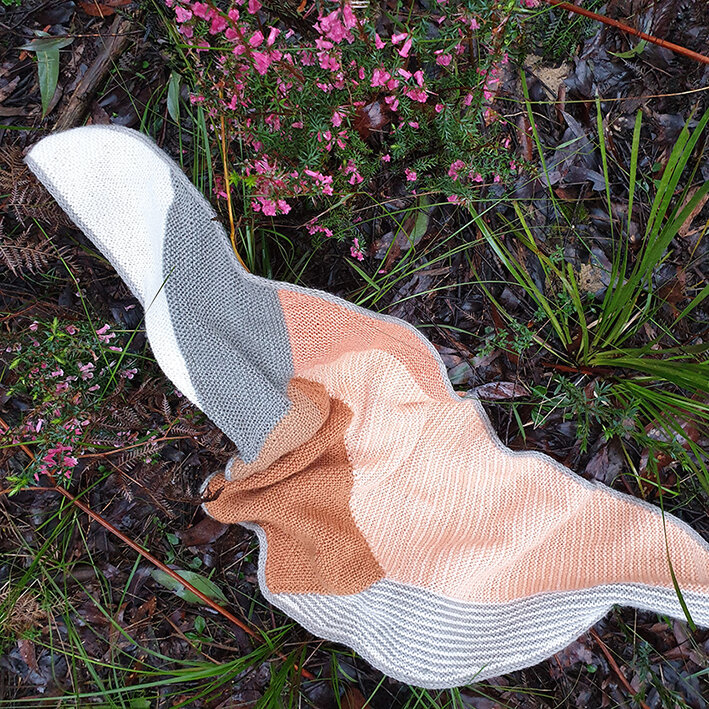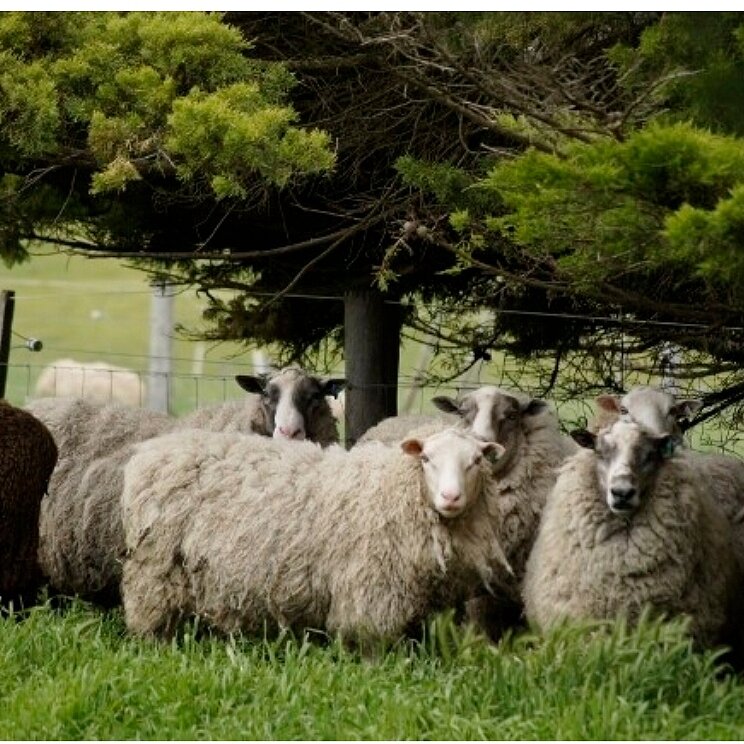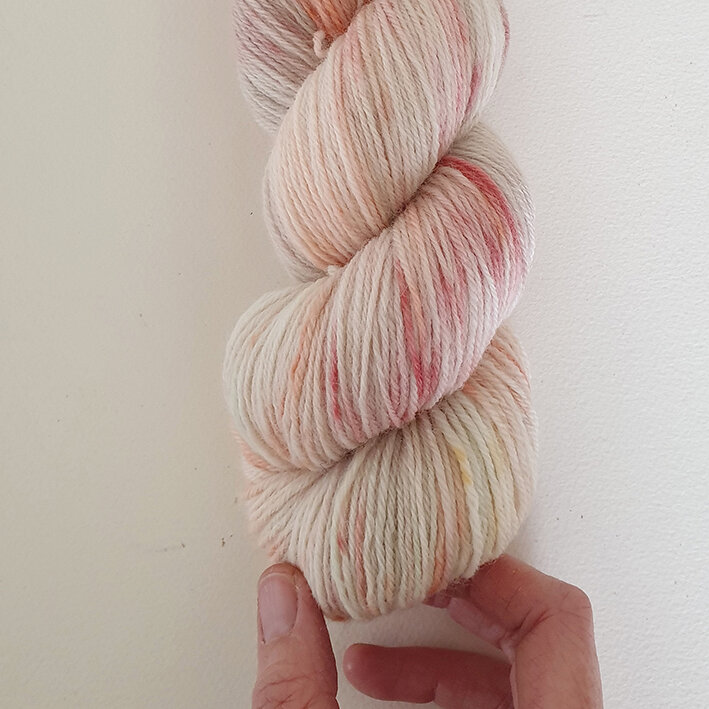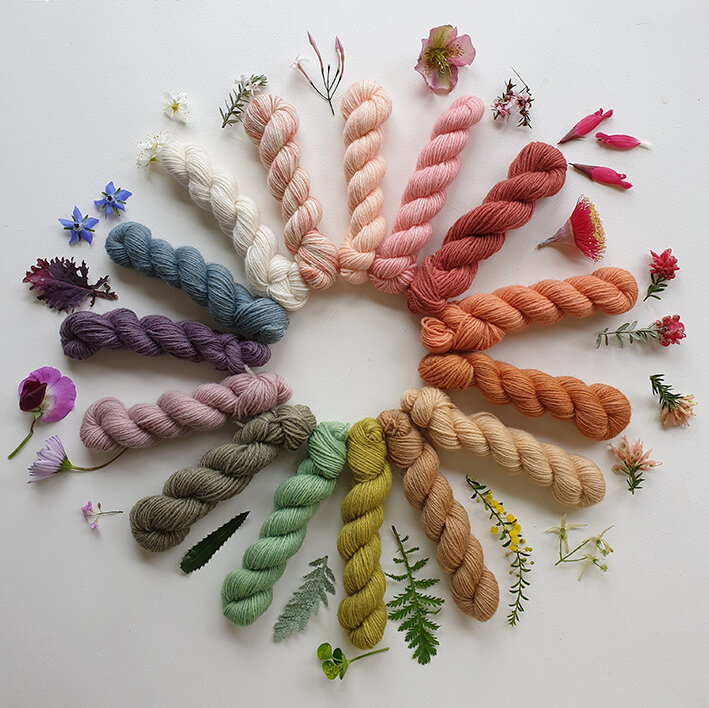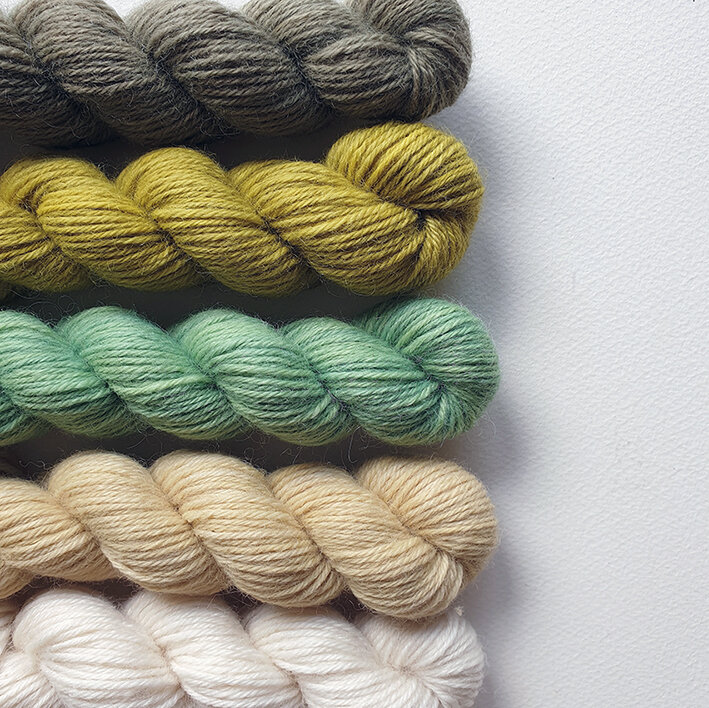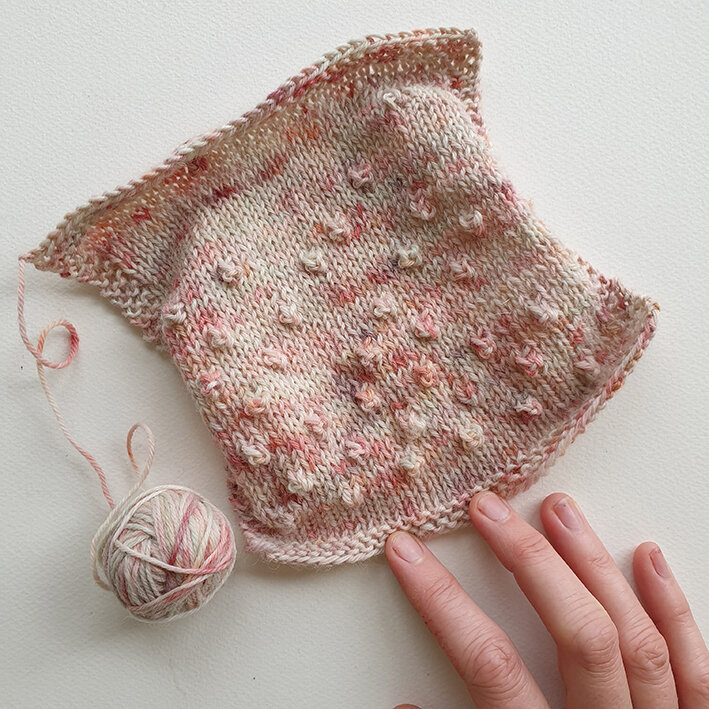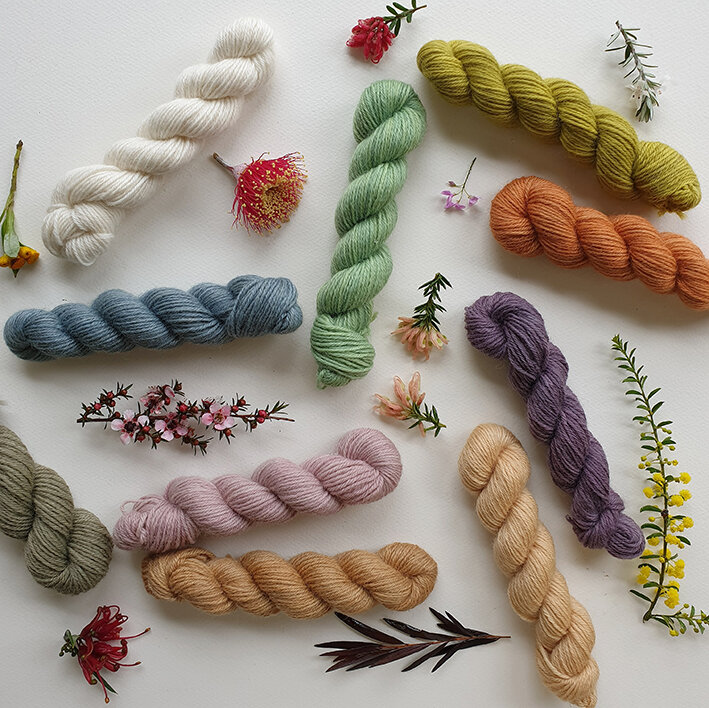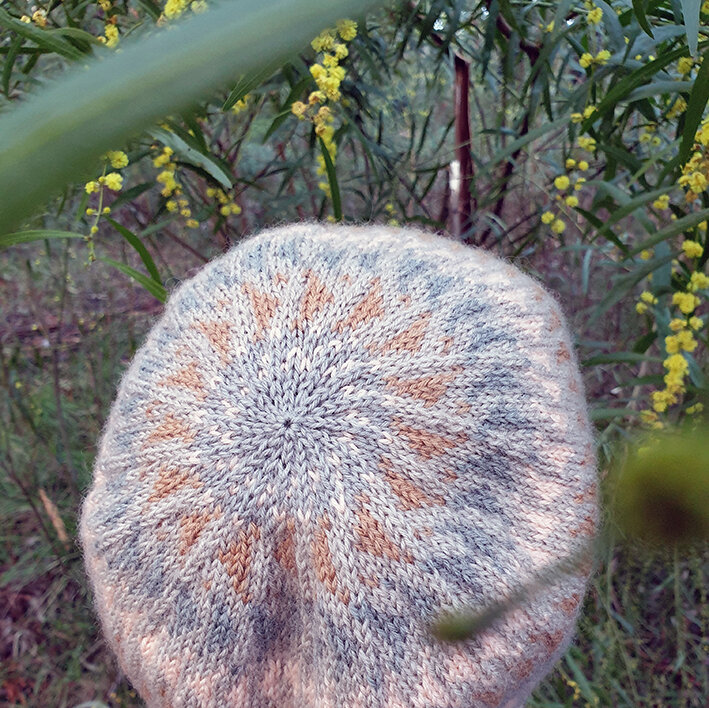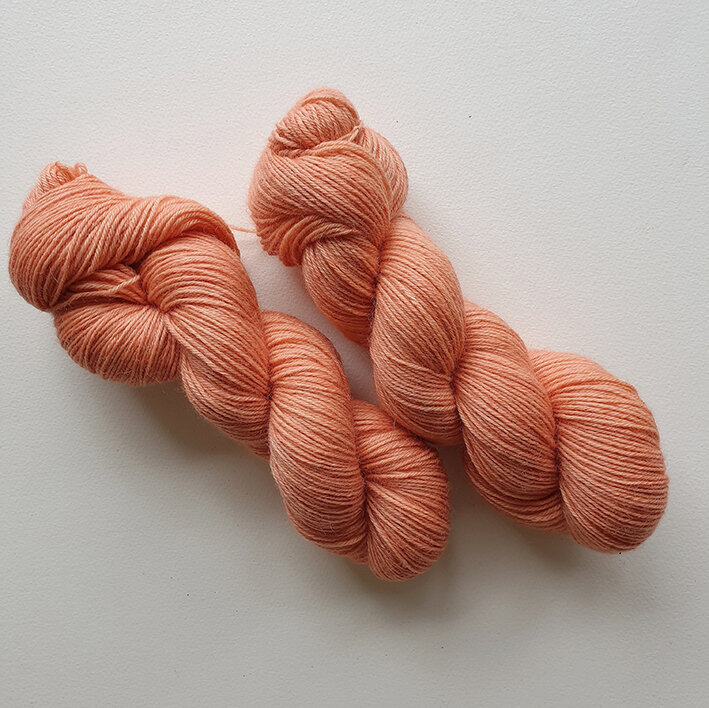Introducing ….. Finn
Have you ever tried knitting with different breeds of sheep?
I came to hand-spinning first, before turning to knitting, and a major appeal of spinning my own yarn is in experimenting with the fleece of lots of different breeds of sheep (and Camelids, Rabbit, Goat and others). A spinner learns about: fleece micron (the diameter of the wool fibre - the larger the number, the coarser the wool); its staple (or length); how a fleece behaves and is best prepared and spun; the individual characteristics of each breed’s fleece and its uses as a yarn. There are plenty of options available in Australia for the hand-spinner seeking to purchase raw or cleaned fleeces and rovings and it is a joy to play with them all!
So why can’t all knitters enjoy a bigger variety of breeds and their benefits?
Australia is the world’s leading producer of fine wool, which is nearly all Merino and nearly all exported. The lack of mills in Australia to process fleeces here makes it difficult to buy a 100% Australian grown, processed and dyed yarn. I shall return to this topic in another Journal post in the future as it is such an important one. But the market really is full of merino, superwash merino, merino/nylon blends, etc. and very little of single source, breed-specific yarns.
Whilst I don’t spin as much as I now knit, I find that I am still drawn to learning about different sheep breeds and how their fleeces/yarns differ from one another. So without further ado …
It is with great pleasure I can offer a small collection of naturally-dyed, breed-specific, single source Victorian yarns to you and proudly present Finn as the first offering. This is my way to celebrate fleeces from different breeds of sheep that may not be commonly found as yarns in Australia and to support our homegrown Victorian farmers and Woollen mills.
Finnsheep, or the Finnish Landrace, or Finn for short, are an ancient Scandinavian breed. They are thought to be related to other short-tailed sheep such as The Romanov, the Shetland and the Icelandic.
The sheep are calm and friendly and commonly have litters of three or four small lambs at one time.
Finn is now on the Rare Sheep breed registry list of Australia and are classed as critical because of such low numbers.
The only Finn fleece and yarn available in Australia comes from Fairfield Finns in Bullengarook in the Macedon ranges, Victoria, owned by Maureen and Gerry, who have been breeding their Finnsheep now for 22 years.
The duo are devoted to raising their flock (currently at 169) ethically and their sheep are not mulsed and their tails are not docked (they have a naturally short tail).
I loved being introduced to the rams in their paddock by Maureen when I collected some undyed yarn a few months ago. The boys, in their little coats to keep their fleeces clean, are all named and known personally to Maureen and Gerry. It makes me so happy knowing that these sheep are loved are cared for so well.
Maureen saves up the shorn fleeces for three years until she has enough to send on to Cashmere Connections for scouring and processing and then on to Wangaratta Woollen Mills to be spun, thus creating a limited edition yarn produced only by their flock’s fleeces.
Finn is a fine, very soft, yet durable and lustrous fibre that is also incredibly lightweight. It can be worn straight against your skin (it isn’t at all prickly or irritating) or made into outer garments such as sweaters, shawls, hats, etc.
It is great for textured knits where a crisp stitch is best such as: knit/purl patterns; laces or cables; or for defined colour patterns or colourwork knitting.
The yarn needs to be handwashed gently (don’t agitate in the water and keep the temperature lower rather than hotter!) as Finn will felt.
I have chosen a mix of my home grown plants and natural dye extracts to naturally dye this beautiful yarn collection and am so pleased with the results. I have used : Goldenrod leaves, Spinning Gum leaves, Manna Gum bark, Walnut hulls, Pomegranate skins, Woad seeds, Brown Onion skins, Hopi Sunflower seeds, Indigo, Madder root, Kamala, Logwood, Lac and Alkanet.

